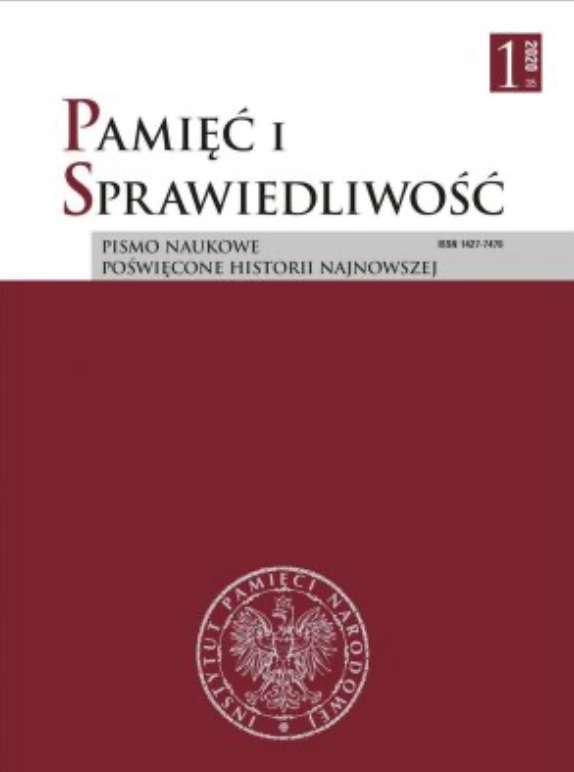Ostatnia odsłona odwilży. Kampania przed wyborami do Sejmu PRL ze stycznia 1957 roku
Last Stage of the Thaw. The Run-up to the PRL Parliamentary Election in January 1957
Author(s): Robert SkobelskiSubject(s): History, Recent History (1900 till today), Post-War period (1950 - 1989)
Published by: Instytut Pamięci Narodowej
Keywords: Election; parliament of the PRL; election campaign;social moods;
Summary/Abstract: The parliamentary election campaign of 1957 was unlike that of 1952 or any which followed until 1989. Awakened democratically and free from the threat of repression, Polish society was counting on further reforms and was becoming a genuine partici-pant in political struggles which the weakened party was unable to control. Emotions were particularly heated during meetings between candidates and voters. In hundreds of such occasions throughout the country, people presented their own views on many issues, often bluntly criticising the current government and asking very difficult que -stions. The most harshly assessed were the centralist candidates, imposed from above in many districts and frequently associated with the Stalinist period. Most candidates from the United Polish Workers’ Party (PZPR) were rejected, and even the authentic popularity of Gomułka could not offset the anti-communist and anti-party mood. Ruthless struggles took place between candidates of the United People’s Party and the United Polish Workers’ Party. Many people openly opposed the ruling party and called on others not to vote for communists, and were joined in this by some Alliance of Democrats (SD) candidates. This coincided with a rivalry within the PZPR – at times based on factional divisions, but more often resulting from a candidate’s posi-tion on their party’s list – mandated or non-mandated. The atmosphere was furt -her heated by the anti-soviet mood that prevailed among a clear majority of voters and some candidates – including party candidates – and the picture was completedby anti-Semitic tendencies mainly resulting from the lasting popular stereotype of Jewish Communism. During the campaign, some became convinced it would be better to boycott the elec-tion. One of the most important causes of this was a lack of trust in those in power, though a reluctance to vote was also expressed by those for whom none of the candidates were worthy of support, whether they were from the centre or locals who were unpopular in their areas. This vision of a universal rejection of Communist Party parliamentary can-didates and a low voter turnout sent the authorities into a panic. For the post-October party leadership, a PZPR election defeat would be a disaster whose consequences would be difficult to predict. And so, Gomułka put his authority on the line – he called for a vote without any deletions, sought the support of the Church, and engaged the army in the propaganda campaign. Also important was people’s awareness of the Soviet threat in the event of a defeat of the communists, as exemplified by Hungary. All these factors culmi-nated in a high voter turnout and a massive return of blank ballots. The PZPR emerged unscathed from the turmoil of the campaign, and its leader managed to achieve most of the political goals he had set.
Journal: Pamięć i Sprawiedliwość.
- Issue Year: 35/2020
- Issue No: 1
- Page Range: 402-435
- Page Count: 34
- Language: Polish

